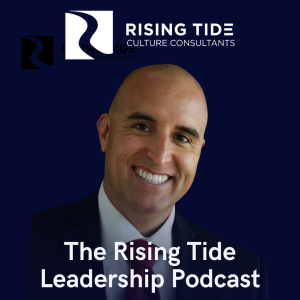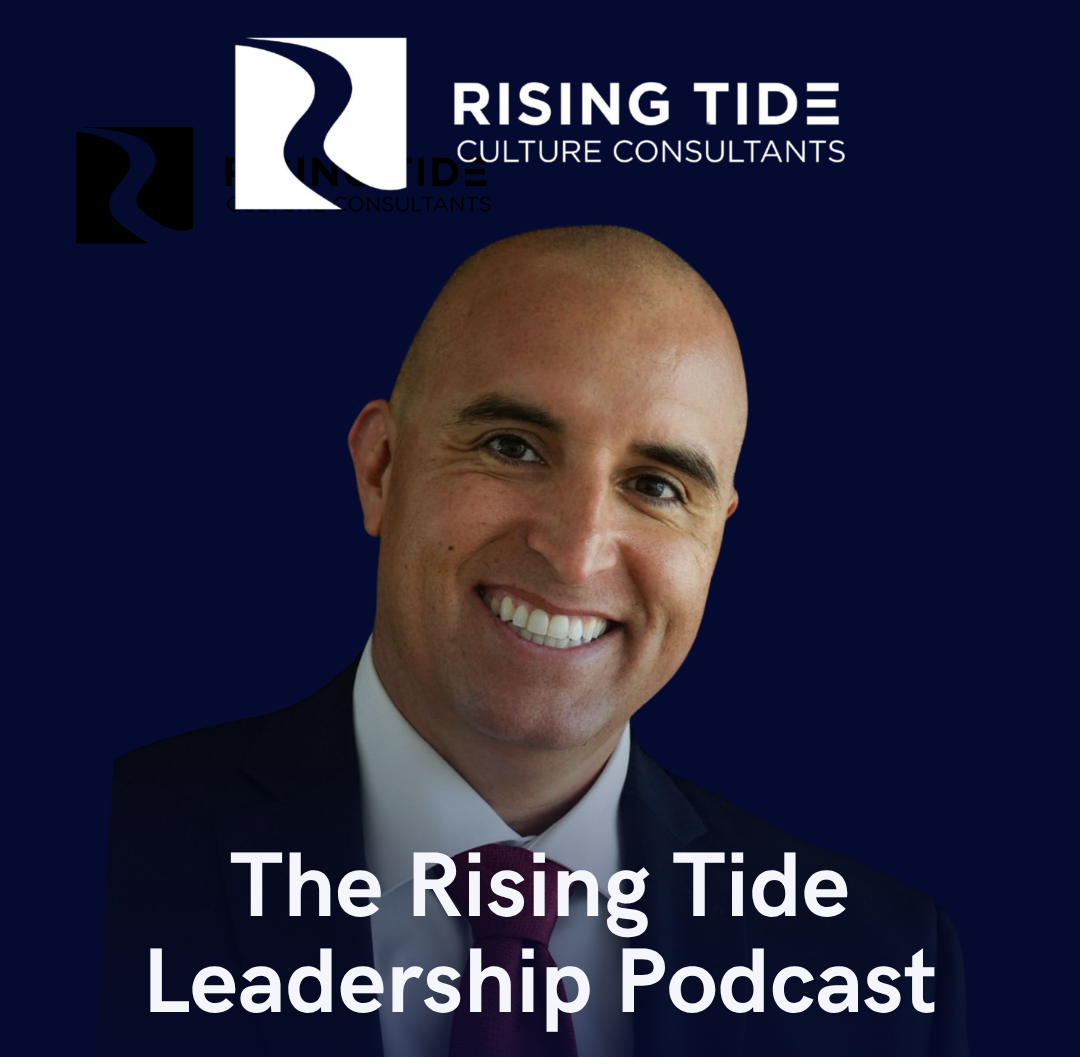Episodes

Monday Dec 02, 2024
Paula Pedene and the VA Whistleblower Scandal (Ep. 88)
Monday Dec 02, 2024
Monday Dec 02, 2024
What would you do if speaking the truth meant risking your career? In this episode, we talk with Paula Pedene, a decorated Navy veteran and whistleblower who exposed the VA Wait Time Scandal. Paula shares her journey of courage, resilience, and leadership, offering powerful lessons on integrity and creating meaningful change. Don’t miss her inspiring story and insights from her award-winning book, A Sacred Duty. Tune in now!
A Sacred Duty: How a whistleblower took on the VA and won, by Paula Pedene
Connect with Paula at paulapedene.com
If you enjoy the content and want to see more, consider buying me a coffee! Your support helps keep the ideas flowing and allows me to create even more valuable content. Every cup goes a long way in fueling future posts, so if you can, I'd genuinely appreciate your contribution. Thanks for listening and for helping me keep this journey going!

Monday Nov 11, 2024
Preparing for a New Year (Ep. 87)
Monday Nov 11, 2024
Monday Nov 11, 2024
In this episode of The Rising Tide Leadership Podcast, hosts Scott and Dr. Michael David Morales (Mo) dive into the transformative power of leadership training. Using engaging film references, such as The Karate Kid and Rocky, they illustrate how the journey of learning and growth can shape leaders and organizations alike. Mo shares compelling stories, including the impactful leadership of Cheryl Bachelder at Popeyes and the legendary strategies of Jack Welch at GE, to highlight how training can manage organizational change and foster a culture of development. They also discuss key concepts like servant leadership, the importance of adaptability, and how boosting self-awareness can lead to personal and professional breakthroughs.
Whether you're a seasoned leader or just starting out, this episode will inspire you to invest in continuous learning and create a culture where everyone can thrive. Plus, Mo reveals practical steps for handling resistance to change and the importance of setting goals that truly matter. Don’t miss out on these actionable insights that can elevate your leadership journey!
Stay connected with us and join the conversation on Instagram, Facebook, YouTube, or our website at rtclc.com. Your feedback fuels our mission to help leaders lead with purpose and authenticity.

Monday Nov 11, 2024
Three Reasons Leadership Training Matters (Ep. 86)
Monday Nov 11, 2024
Monday Nov 11, 2024
In this episode of the Rising Tide Leadership Podcast, Scott and Dr. MO explore the transformative power of leadership training. They discuss how practical training can reshape organizations, manage change, and foster personal and professional development. They emphasize the importance of servant leadership, collaboration, and continuous growth in leadership roles through engaging anecdotes and insights.

Monday Oct 21, 2024
Leaders Leverage Personality Traits (Ep. 85)
Monday Oct 21, 2024
Monday Oct 21, 2024

Tuesday Oct 08, 2024
Defining Your Leadership Style (Ep. 84)
Tuesday Oct 08, 2024
Tuesday Oct 08, 2024
In this episode, Scott and Dr. MO discuss the importance of finding and defining one's leadership style. They explore themes of personal authenticity, adaptability in leadership, and the impact of performance amplification on team success. Drawing inspiration from the film 'Dead Poets Society,' they emphasize the transformative power of leadership that encourages individuality and creativity. The conversation highlights real-world examples, including Howard Schultz's leadership at Starbucks, and offers practical advice for leaders to enhance their effectiveness.
-True leadership is about encouraging deeper meaning.
-Your leadership style should align with your personality.
-Authentic leadership builds trust with your team.
-Learn how to be coachable as a leader.
-Crisis doesn't mean the building's on fire.
-Are you ready to make decisions in a crisis?
-Performance amplification helps your team succeed.
-You have to know your strengths as a leader.
-Your people won't buy into your vision until they buy into you.
-Lead with purpose and stay authentic.

Monday Sep 23, 2024
The Right Leadership Stuff (Ep. 83)
Monday Sep 23, 2024
Monday Sep 23, 2024
Summary
In this episode of the Rising Tide Leadership Podcast, Scott and Dr. Michael David Morales discuss the profound impact of leadership on organizational culture, using Netflix's rise as a case study. They explore how leaders can model behaviors, establish clear purposes, and reinforce accountability to shape a thriving culture. The conversation emphasizes the importance of clarity, the dangers of micromanagement, and the need for leaders to actively engage with their teams to foster an environment of trust and innovation.
Takeaways
-Leadership is about shaping the culture of your organization.
-Leaders must model behaviors that they want to see in their teams.
-Clarity in purpose and direction enhances team engagement.
-Accountability should empower rather than punish team members.
-Culture is fluid and requires active management by leaders.
-Leaders should encourage open communication and trust within their teams.
-Setting clear expectations helps in reducing uncertainty.
-Micromanagement can stifle creativity and autonomy in teams.
-Leaders should focus on developing their team members into future leaders.
-Continuous improvement is essential for effective leadership.

Monday Sep 09, 2024
Influence Without Authority (Ep. 82)
Monday Sep 09, 2024
Monday Sep 09, 2024
Summary
In this episode, Scott and Mo discuss the concept of leading from where you are, even without formal authority. They draw inspiration from the TV show Parks and Recreation and share real-world examples of individuals who have successfully influenced others without holding a position of power. The key themes explored include building credibility and trust, mobilizing allies, and finding common ground. The hosts provide practical strategies for leaders to implement, such as building relationships with colleagues in other departments, resetting with their boss, and understanding the non-negotiables of their team members. The episode concludes with the reminder that influence doesn't require a title, but rather a willingness to connect, listen, and lead with purpose.
Takeaways
-Leading from where you are means influencing others without holding a formal position of power.
-Building credibility and trust is crucial for leading from where you are.
-Mobilizing allies, especially those in higher positions, can help you achieve your goals and overcome obstacles.
-Finding common ground and understanding others' non-negotiables is essential for effective collaboration and teamwork.
-Influence doesn't require a title; it requires a willingness to connect, listen, and lead purposefully.

Tuesday Sep 03, 2024
Toxic Leadership at Work (Ep. 81)
Tuesday Sep 03, 2024
Tuesday Sep 03, 2024
- Toxic relationships can be passive or in-your-face, and social media has made it easier for negativity to spread.
- Younger generations are more sensitive and affected by negative comments and online bullying.
- Self-awareness and setting boundaries are crucial in dealing with toxic relationships.
- Servant leadership involves serving others, but it's important to avoid enabling toxic behavior.
- Surrounding yourself with positive influences and prioritizing your own well-being is essential. Leaders need to take action and not wait for others to follow
- Creating a positive culture requires setting clear expectations and behaviors
- Address toxic behavior and remove individuals who are not a good fit for the team
- Prioritize relationships with those who are responsive and supportive
- Be a proactive and responsible leader

Monday Aug 19, 2024
Am I An Authentic Leader? (Ep. 80)
Monday Aug 19, 2024
Monday Aug 19, 2024
- Authenticity is crucial in leadership because it builds trust and fosters a predictable and secure environment.
- Consistency cultivates confidence by being the same person in every situation.
- Transparency transforms teams by creating an open and honest environment where ideas and concerns can be shared.
- Integrity inspires influence by doing the right thing even when no one is watching.
- "Struggling with plummeting sales and a market that had moved on, Lego was teetering on the edge of financial ruin in the early 2000s."
- "His authentic approach revived that company and really transformed them into the global success story that they are today."
- "Consistency cultivates confidence."
Books Mentioned
- Dare to Lead: Brave Work. Tough Conversations. Whole Hearts, by Brene Brown
- The Five Dysfunctions of a Team: A Leadership Fable, by Patrick M. Lencioni

Tuesday Aug 06, 2024
Olympians Inspire Leadership Greatness (Ep. 79)
Tuesday Aug 06, 2024
Tuesday Aug 06, 2024
Summary
In this episode of the Rising Tide Leadership Podcast, Scott and Mo discuss the power of perseverance, overcoming adversity, and the commitment to excellence, using examples from Olympic athletes. They start by talking about Simone Biles and her journey to the Olympics, highlighting her ability to overcome challenges and prove her critics wrong. They then discuss Jesse Owens, who faced racial discrimination and financial hardships but still won four gold medals in the 1936 Berlin Olympics. Next, they talk about Wilma Rudolph, who overcame polio and poverty to become the first American woman to win three gold medals in a single Olympics. Finally, they discuss Michael Phelps and his unmatched work ethic and focus on continuous improvement. The episode concludes with the advice to watch and learn from these athletes' stories of perseverance, overcoming adversity, and commitment to excellence.
Keywords
perseverance, overcoming adversity, commitment to excellence, Olympic athletes, Simone Biles, Jesse Owens, Wilma Rudolph, Michael Phelps
Takeaways
- Perseverance is key to overcoming challenges and proving critics wrong.
- Leaders should embrace obstacles as opportunities to grow stronger and improve their capabilities.
- Adversity can be conquered with tenacity and an unyielding spirit.
- Continuous improvement and setting high standards are essential for achieving excellence.
- Leaders should learn from the stories of Olympic athletes and incorporate their lessons into their leadership practices.

